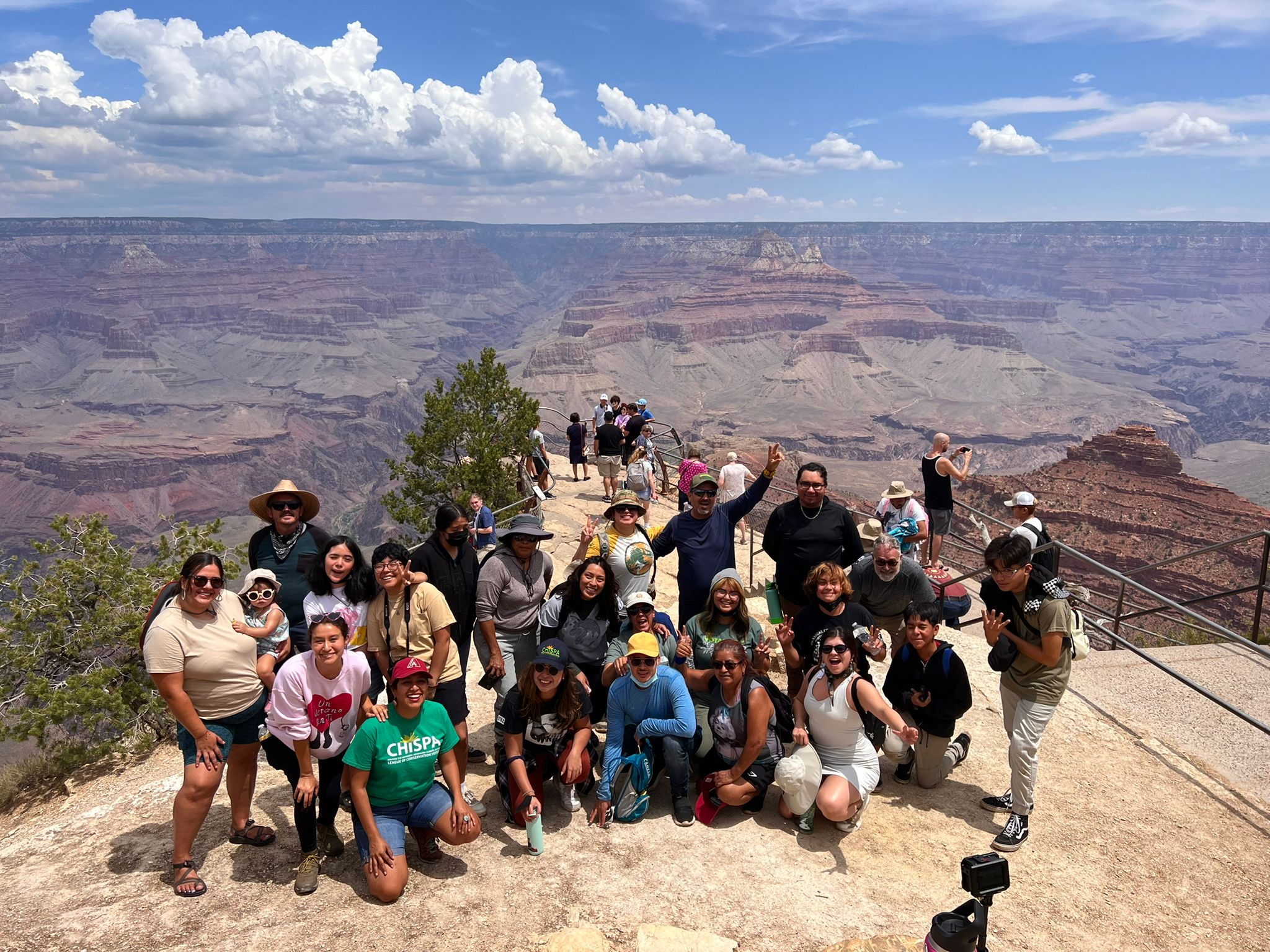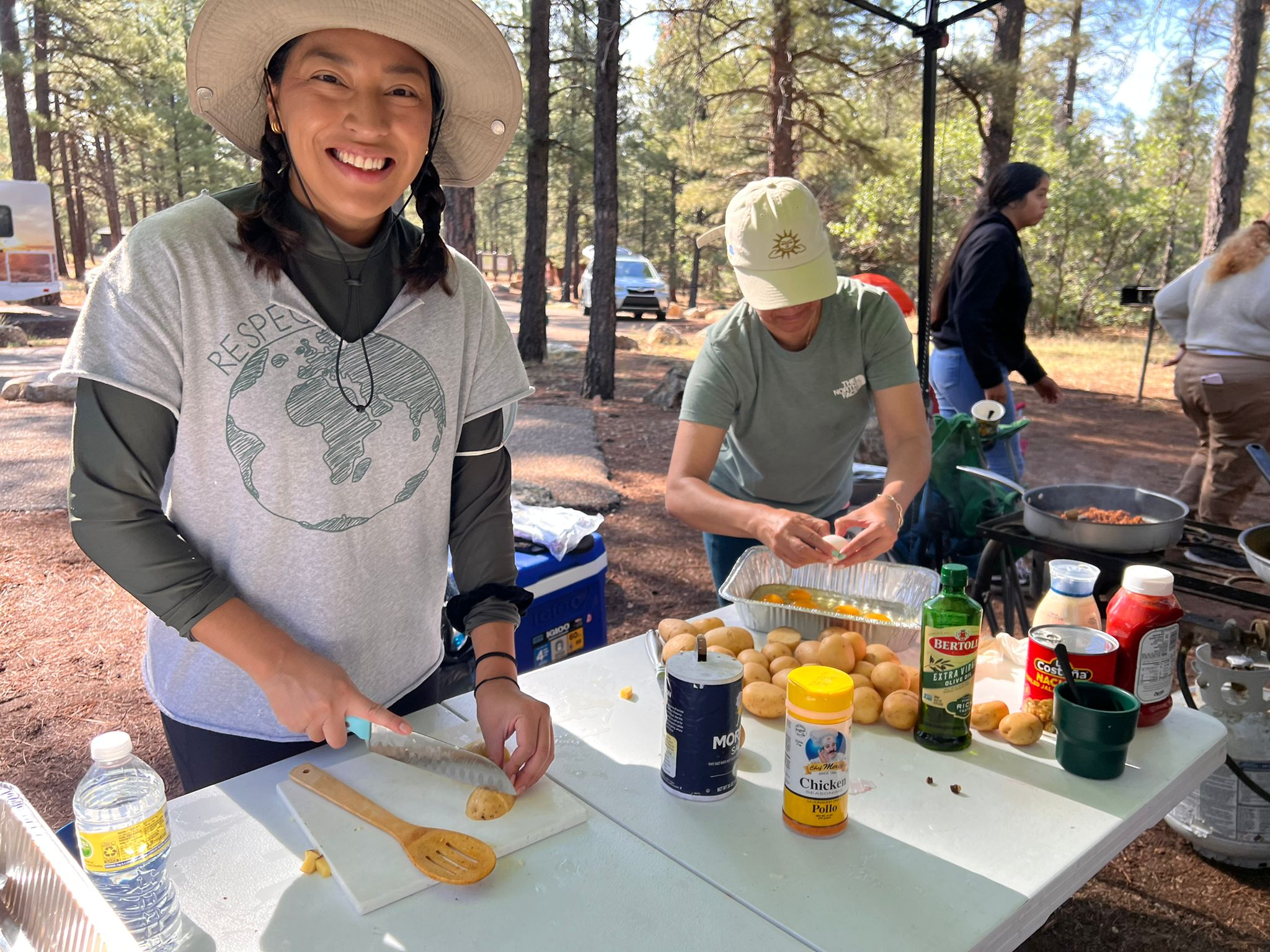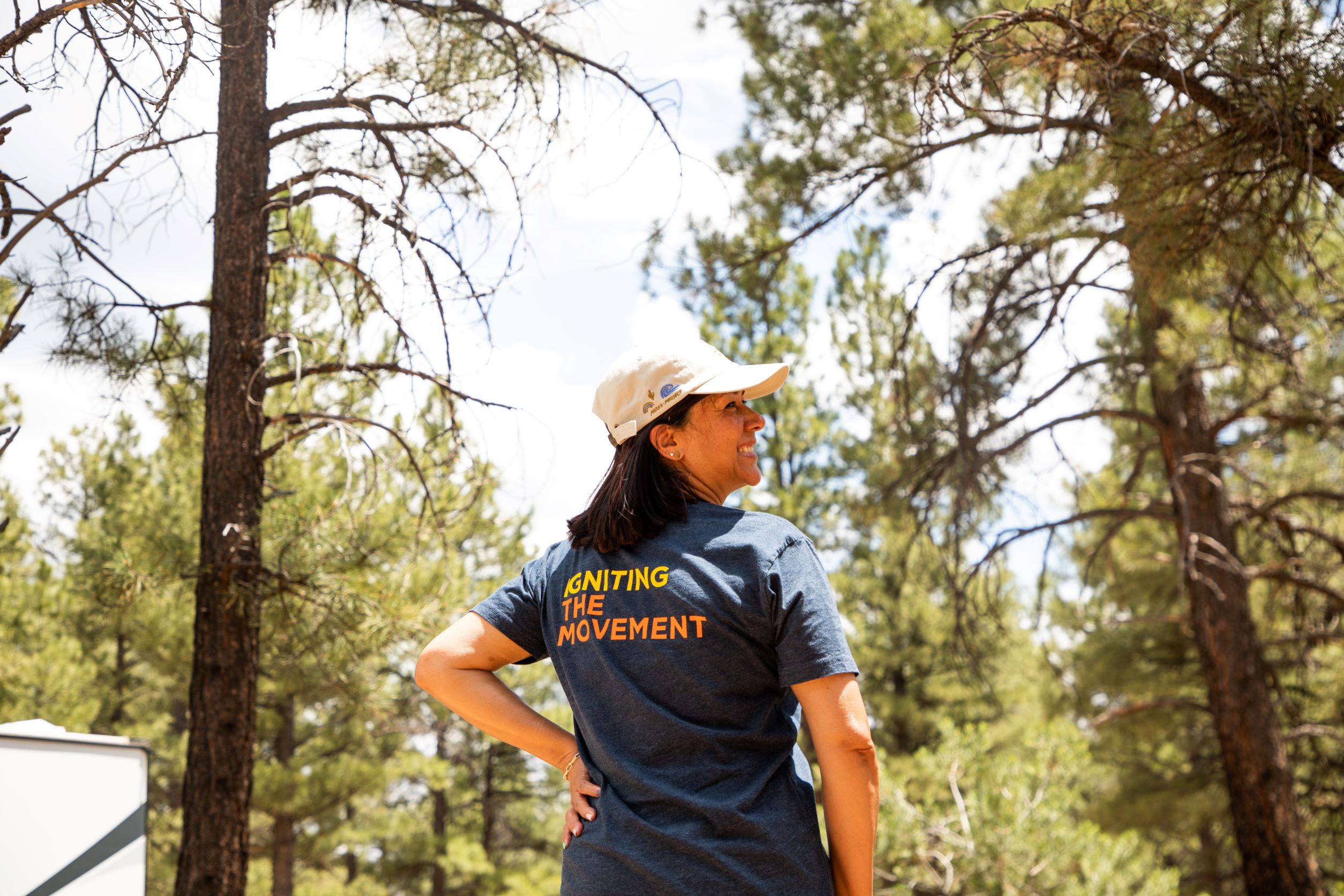Good Disability Policy is Good Environmental Policy
Apr 24, 2024
To help build trust in Latinx communities to feel safe and engage in the outdoors, Chispa Arizona understands the importance of meeting people where they are. Using a lens of intersectionality, the team has created diverse sets of entry points to help their community feel comfortable in spaces where they have historically been made to feel their otherness.
Each month, Chispa Arizona, a state affiliate of the League of Conservation Voters that advocates for environmental justice and Latinx communities, hosts hikes and other outdoor community engagement events for participants to build connections with the land, their ancestral history, and each other.
During Latino Conservation Week in August, an intergenerational group of 24 hikers embarked on a weekend-long trip to the Grand Canyon where they heard from Indigenous leaders about the history of the Canyon and efforts to protect it. Throughout the trip, members grew community with one another through engaging in art and practicing communal living.

(Chispa AZ members hike the Grand Canyon, courtesy photo of Chispa AZ)
“We take ourselves to places that historically haven’t seen us, and where we haven’t felt comfortable,” said DJ Portugal, federal climate organizer for Chispa AZ. “I feel that is the beginning of igniting this interest and curiosity, whether it’s conservation or climate or decolonization. All these entry points are sparks for the community”
In Arizona, Latinx community members have been systemically excluded from accessing public lands due to a lack of reliable transportation, expensive hiking equipment, and lack of knowledge, among other things. Many also fear the surveillance of park rangers in uniform because of the systemic history of anti-immigrant policies in the state. This is also true nationally, as the conservation movement remains predominantly White, and Latinx and communities of color face disproportionately less access to the outdoors, known as the Nature Gap.
Many individuals also work full-time, making it difficult to find time for exploring the outdoors. To close this gap, Chispa AZ started a “moonlight hike” series where participants head outside after their typical work hours to hike with community members. It gave them the chance to experience living by the cycle of the moon, a practice common to Indigenous cultures prior to colonization.
Chispa’s work extends beyond physically bringing their communities into the outdoors. During their trips, the team focuses on healing by opening space for dialogue, teaching about decolonization, and acknowledging participants’ identities, beliefs, and fears. These connections with one another help bridge gaps of understanding and create a sense of group safety.

(Chispa AZ members hike the Grand Canyon, photo by Noemí Gonzalez)
“We’re able to have very difficult conversations in grounded, practical ways,” said Chispa AZ Digital Organizer Noemí Gonzalez.
Noemí’s mother and Chispa AZ member Vero Gonzalez attended the Grand Canyon hike in August, saying “Nunca en mis años en los EEUU he ido caminando. Caminar bajo la lluvia y conocer a nueva gente con mismas experiencias que yo de mamá y migrante fue algo especial. Poder aprender de los pueblos originarios y aprender que todavía están aquí en la lucha por Madre Tierra me dio la energía para entender de mis ancestros y como he sido impactada por la colonización – no nomás yo pero mis hijas también. Y mirar a mi hija que es gerente de las redes sociales reír y vivir su lucha por Madre Tierra me llenó de orgullo.”
“Never in my years in the United States have I gone hiking. Walking under the rain and meeting new people with the same experiences as me as a mother and migrant was something special. Being able to learn from the Indigenous people and learn that they are still here in the fight for Madre Tierra gave me the energy to understand my ancestors and how I was impacted by colonization – not just me, but my daughters as well. And watching my daughter who is the social media manager laugh and live her fight for Madre Tierra filled me with pride.”

(Vero Gonzalez on the Chispa AZ Grand Canyon campsite, photographed by Noemí Gonzalez)
During another hike to the Great Bend of the Gila on Sept. 17, Chispa AZ applied this same holistic approach to help hikers recognize how they “have power and agency in what the solutions are,” according to Portugal.
Not only did participants get to experience the Great Bend of the Gila, but they were educated on the Indigenous history of the land and on efforts to conserve it through the The Great Bend of the Gila National Conservation Act, which was introduced by Natural Resources Committee Chair Raúl M. Grijalva. After the hike, the group also stopped by a small Carniceria, market, in the adjacent town of Gila Bend where many Indigenous, migrant, and undocumented people live. The stop was a way for Chispa members to build new connections and listen to the stories of community members near the Gila who have experienced increasingly worse monsoon flooding. The community members shared how the town lost two lives to the flooding last year due to the lack of investment in infrastructure; an example of how black, indigenous and communities of color are on the front lines of the climate crisis. Portugal shared that equity and justice are the lens through which Chispa approaches conservation and all the work they do.
“A lot of us, whose livelihood comes from fighting this fight, to be embedded so intentionally with community in an outdoor setting completely re-energizes and refuels you, and reminds you of the hope, and reminds you of how communities of color fight for justice,” said Noemí Gonzalez.
Through all of their hikes, Portugal noted the value of helping people feel seen. With these principles of compassion, community-building, and understanding, Chispa AZ is helping create sparks for their Latinx members to become more comfortable in the outdoors.